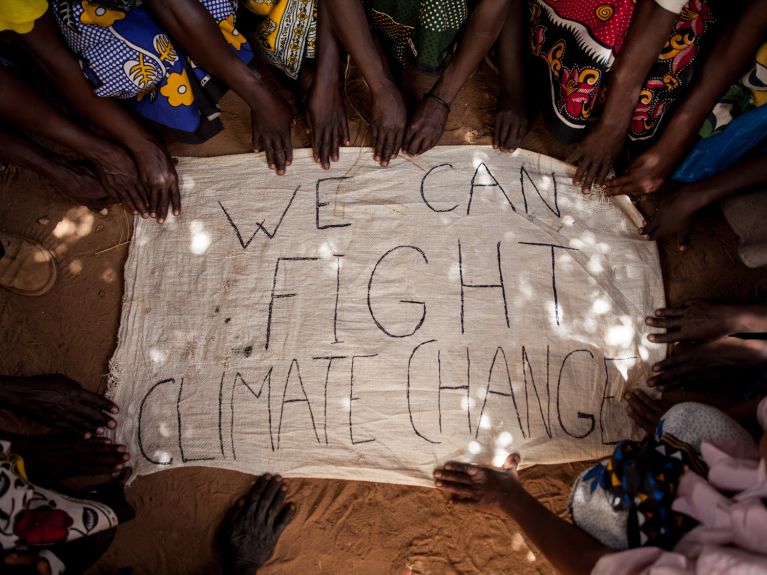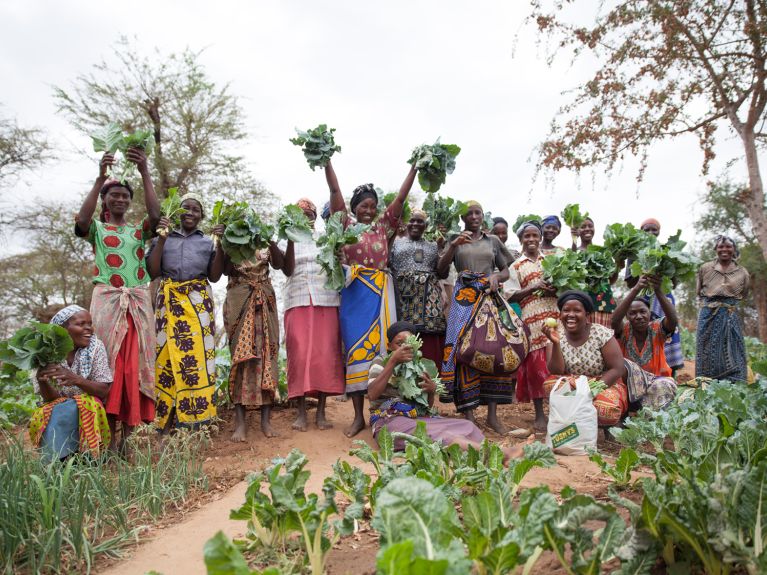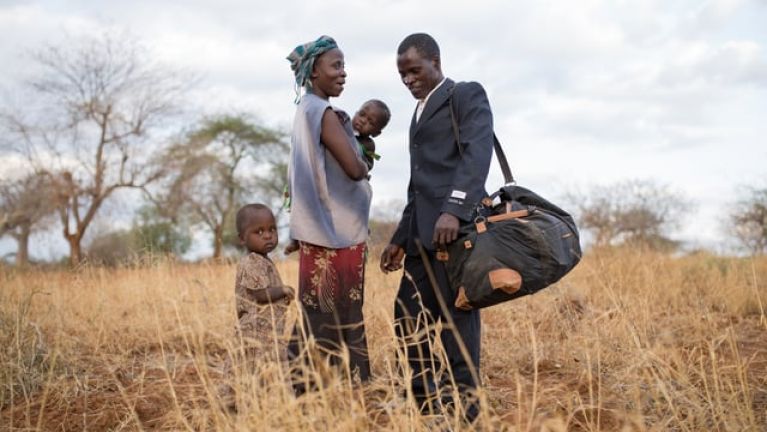Building Climate Resilient Farming Communities, Kenya
The goal of the project is to build climate resilient communities in Kenya, and enabling small-scale farmers to adapt to the changing weather patterns and improve their livelihoods.

Project name: Building Climate Resilient Farming Communities
Project location: Kenya
Website: http://www.thankyoufortherain.com
Dieses YouTube-Video kann in einem neuen Tab abgespielt werden
YouTube öffnenThird party content
We use YouTube to embed content that may collect data about your activity. Please review the details and accept the service to see this content.
Open consent formProject description:
This project aims to create climate resilient communities in East Africa, by launching a series of farmers community events with workshops, seminars and discussions about adapting agricultural practices to climate change and the benefits of forming self help groups. The workshops will be led by the small-scale farmer and activist Kisilu Musya from Mutomo, Kenya, who has been been working to improve the livelihoods of his own community for the last 8 years.
Kisilu’s hard work in his local community was documented in the award-winning documentary film Thank You For The Rain. Kisilu is now going to expand the efforts to communities across Kenya, by using the film as a part of a farmer’s workshop program. The film gives farmers a better understanding of climate change, and encourages them to build climate resilience. Through the workshops farmers learn how to come together to do table banking, share climate resilient farming techniques, improve irrigation systems, and keep goats. The workshops enable the farmers to adapt to the changing weather by diversifying their enterprises.
We collaborate with government departments and relevant area stakeholders to make them see the huge potential in allocating more money for such climate adaptation initiatives and strengthen the linkages between the programs stakeholders are running in this regard for the farmers to plug in.
We have already completed a successful pilot project in the Mutomo area, with very positive feedback from the community. We held four screenings in two different towns using the film as a tool to bring together community members, county government officials, local and surrounding areas stakeholders. The screenings were followed by solution driven discussions on the main challenges facing the farmers in light of climate change among them advice on how the farmers can plug into the programs already being run by the government in their ward.
‘This film captures exactly what we are going through, our problems as farmers, the drought. What we need is information.’ Domitila Muimi - Small scale farmer
The film was watched by over 1000 people in the pilot screenings. The response was phenomenal with officials from other counties already requesting similar events in their areas. In Kitui county where Kisilu comes from discussions are underway to screen the film in the schools to create climate change awareness at an early stage.
With the prize money, we will be able to rollout the program in other areas beyond Kisilu’s county and reach thousands of farmers across the country. The project supports local climate action, improves the livelihoods of small-scale female farmers, fosters climate protection through tree-planting, and supports social, climate smart farming and economic entrepreneurship.

Goal and purpose of the project:
The goal of the project is to build climate resilient communities in Kenya, and enabling small-scale farmers to adapt to the changing weather patterns and improve their livelihoods.
We aim to organize 30 events across Kenya, where each community screening brings together government officials concerned, local stakeholders and the community members to find solutions to their main climate challenges. These discussions solve broken linkages between the government efforts, programs and community needs. The community at the end of the discussions can tap into the solutions the government and the stakeholders are providing in their areas. The aim is to build on existing climate change solutions ongoing and initiate climate adaptation practice where there are none.
Even as the needs vary in different areas, the need for information remains top of the requests. This project intends to link farmers groups with the right organizations and solution providers that can deal with their unique grassroot challenges, for sustainable climate smart practices long after the screening of the film.
Motivation of the applicant / applicant team:
Kisilu Musya: "I’m a father and small-scale farmer from a Mutomo, Kenya. Over the last 5 years I’ve been documenting the climate challenges me and my community are facing. Droughts, storms and floods make it very difficult to be a farmer, but we cannot give up! I have been working hard to find solutions in my local community, and together we are researching, sharing and building knowledge on how to adapt and become climate resilient. We are UNITING against climate change! After seeing the results in my own community, I want to empower other communities across Kenya to do the same."
Use of prize money
The prize money will go towards building on the work Kisilu is already doing in his community. This will help the community groups access the much needed information on markets for their produce and smarter framing methods that are resilient to climate change i.e. mixed farming. The community members at previous film screening have requested to see how other areas in the country are dealing with similar climate challenges. This prize money will go towards organizing farmer to farmer visits where some of the community members get to see and learn first hand from other farmers on what can work in their area through proven practice from peers.
The prize money will help organize more screenings in 2 ASAL (arid and semi arid lands) counties and one more county that could suffer similar effects. This will be test screenings through the existing ‘Adaptation Planning Committees’ where the film is used as a tool to bring stakeholders together to discuss their unique climate challenges and what solutions exists that they could tap into or others that would be.
